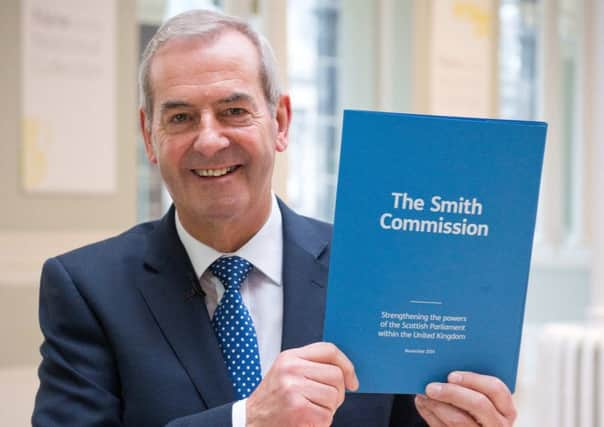New Holyrood powers ‘likely to face legal challenge’


There are also concerns that the spending powers in the Smith Commission agreement could be a “poisoned chalice”, leaving Scotland with a “funding crunch” in future years.
The proposed Scotland Bill powers were drawn up following “The Vow” in the closing days of the referendum by pro-union leaders pledging sweeping new powers for the Scottish Parliament if Scots voted to stay in the UK.
Advertisement
Hide AdAdvertisement
Hide AdThe deal will see Scotland gain full control over income tax rates and bands, as well as some new welfare powers.
But Andrew Tickell, of Glasgow Caledonian University, told Holyrood’s devolution committee yesterday that a legal challenge was “quite probable” over the new welfare controls which include some parts of the new universal credit and carers‘ allowance.
“This parliament has seen a number of its acts challenged in courts - not only on ECHR grounds, EU law grounds, but also in the sense that legislation relates to reserved matters,” he said.
“If you have a convoluted scheme of welfare with exceptions on exceptions, then you can bet your bottom dollar that you will find your case in court brought by somebody.”
The welfare proposals have already prompted criticism that they don’t go far enough and Mr Tickell said action could be taken by “ordinary member of the public” or campaign groups such as the Christian Institute or Axa.
“For example, the disability clauses as they stand say that a disability benefit created by this parliament has to be significant.
“Now significant is a pretty vague phrase - if this parliament introduces such a bill about disability and somebody out there disagrees with it, then that can be reviewed in the Court of Session.”
Legislation to implement a minimum alcohol price in Scotland has been parked in the courts for the past three years after a legal challenge from the Scottish Whisky Association.
Advertisement
Hide AdAdvertisement
Hide AdScotland will get about £2.5 billion in extra revenues to pay for the new welfare controls.
But there have been warnings that the country’s ageing population could mean demand quickly outstrips the revenues provided.
Iain MacLean, professor of politics at the University of Oxford, told MSPs: “I think poisoned chalice is a perfectly appropriate phrase.
“If Scottish tax receipts do not go up in proportion to spending liabilities, then it is indeed a poisoned chalice.”
The academic also warned there was a lack of clarity about how a “no detriment” principle at the heart of the changes to the new fiscal framework would work.